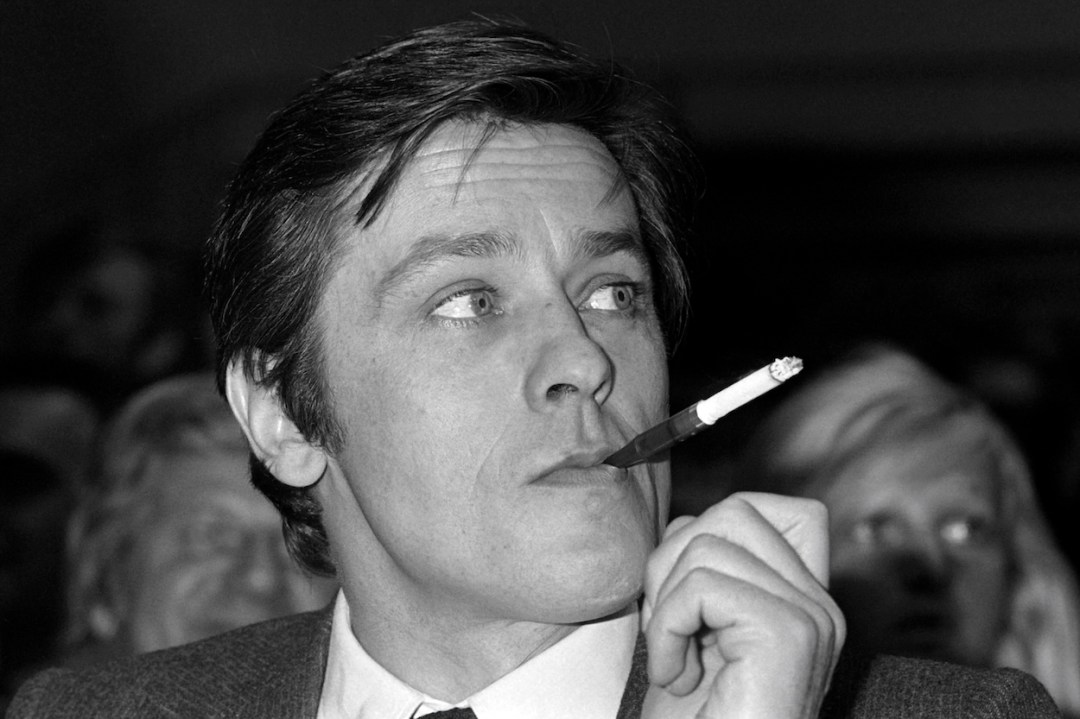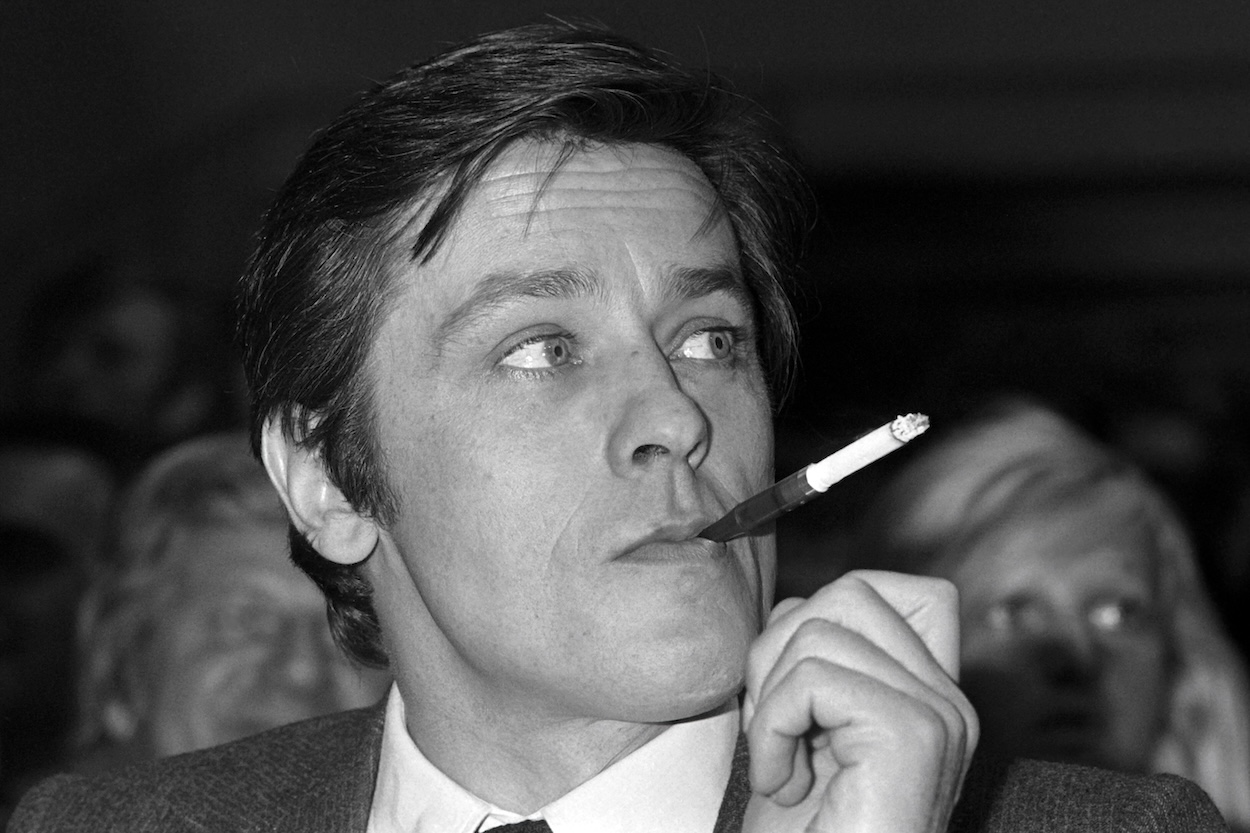In a 1962 interview, Alain Delon pushes aside a carafe of red wine and explains that when offered his first cinema role, he didn’t really want it: je n’avais pas envie de faire spécialement ça. Delon, who died over the weekend at the age of 88, may not have been immediately seduced by cinema, but cinema was instantly seduced by him. In a lifetime filled with roles playing rogues and gangsters – Plein Soleil (1960), Il Gattopardo (1963) and Le Samouraï (1967) – the role he is best known for is himself, a shapeshifter who flirted with the actor’s mask; sometimes hiding behind it, sometimes letting it slip off altogether. There, in the space between authenticity and artifice, Delon found his métier, delighting in his confection as much as his audience did: ‘I fell in love with the camera,’ he says.
He incarnated a certain kind of melancholy, ineffably French beauty
Born in Sceaux, outside Paris, in 1935, Delon’s early life was turbulent. An only child, he was left with a foster family at the age of four. The fracture of his family preyed on his mind until the very end. Interviewed by Bernard Pivot in 1996, Delon said that the greatest wish God could grant him would be to lead him to his parents, so for the ‘first time, at last’ he could see them together. It’s not hard to see why director Luchino Visconti cast him in the role of Tancredi in his film adaptation of Lampedusa’s The Leopard, a novel about the fall of an aristocratic dynasty. Later, in Joseph Losey’s Monsieur Klein (1976), Delon channelled yet more of his early agony as an exploitative art dealer during the second world war, caught out by the bluff of a double identity in the form of a Jewish man with the same name. Delon was always playing on the slippery nature of identity and its discontents.
A friend of Jean-Marie Le Pen’s, Delon openly pledged his support for the Front National in a Swiss newspaper in 2013, declaring that he found its progress ‘uplifting’. Six years later, when the Cannes Film Festival honoured him with a Palme d’Or, the film industry was up in arms, asserting that his ‘gruesome’ politics and misogyny were ill-aligned with its progressive intentions. Choosing his words carefully yesterday, Macron described Delon as a ‘monument’ to France, glossing over so much of the political controversy that divided his admirers. Monuments can’t, after all, be torn down on the basis of contemporary opinion; not yet at least. Delon, unapologetic to the end, proved to be that rare thing: an open and genuinely conservative French cultural icon who fought in Indochina (never mind the court martial for stealing a jeep) and just happened to be one of the best-looking actors France has ever seen.
Of his looks, people are unequivocal. He incarnated a certain kind of melancholy, ineffably French beauty. France will take his outrageous good looks as her own, touting his handsomeness as evidence of a very specific Gallic charm. A few have pointed to the photo of co-star Marianne Faithfull fawning over Delon while boyfriend Mick Jagger draws miserably on his fag in the corner. But over the course of his romantic life, it was his beauty that caused him so much trouble. Delon’s romantic life was fabulously chaotic. He was the father of three children by two different women – actress Nathalie Delon and Dutch model Rosalie van Breemen – yet his adultery and indiscretions were tolerated as a French institution. After all, seeing your mistress between cinq à sept is an established part of the culture, so much so that Agnès Varda named a film after the late afternoon practice.
Soon, surely, the biopic of Delon’s life will emerge, and the facts of it – his former bodyguard Stevan Markovic found dead in a skip, the children warring over his estate, the parties with Georges Pompidou, the cemetery he built for his 30 dogs in the grounds of his Loire château – will eclipse even some of his greatest films. Smiling at the camera in 1962, could Delon have imagined that his life would prove to be his greatest role? I think he sensed it. In fact, I think in a Ripley-esque double turn, he played with it, delighting himself most of all.








Comments